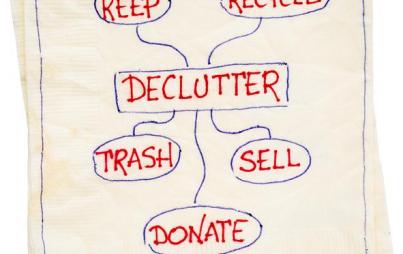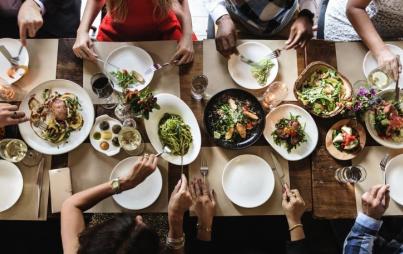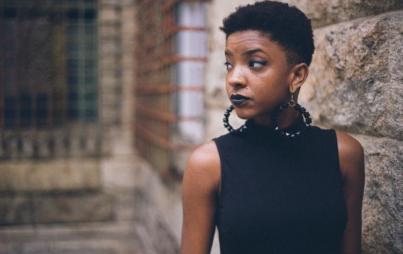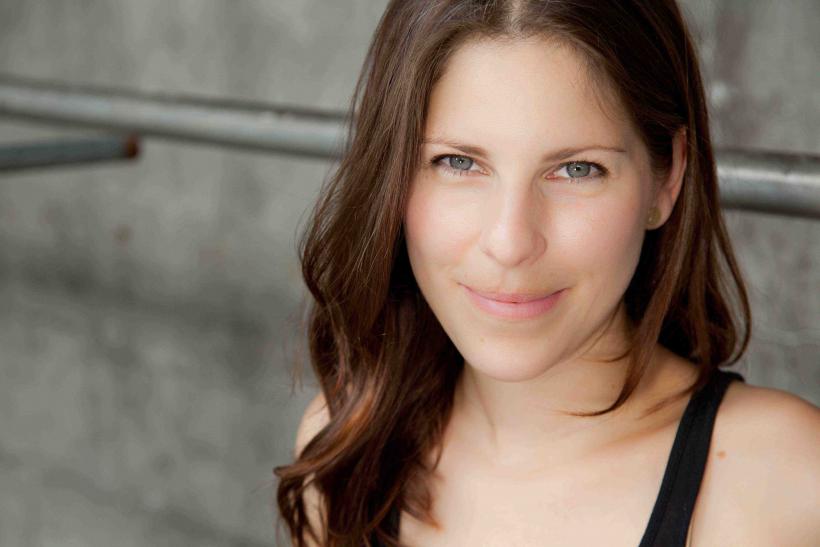
Robin Berzin, MD, describes her medical approach as "functional"; rather than focusing on a quick fix, she and her team have mastered the art of addressing diet and lifestyle to transform not just a person's body—but their mind and very being. If that sounds "soft," as Berzin puts it, it shouldn't. A graduate of Columbia University’s College of Physicians and Surgeons, Berzin is a highly trained doctor who bases her medical practice in sound science and well-honed expertise, not to mention a firm commitment to treating each patient with personalized care.
In addition to advocating for a holistic approach to medicine, Berzin is at the forefront of the exciting movement to transform medicine through technological innovation. She's the co-founder of Cureatr, a mobile messaging platform for health care providers, and an advocate for wearable tech who's spoken about medical care in a 2.0 age for the Clinton Foundation, the Evolution of Medicine Summit and Vice.
We talked with Berzin about the differences between Eastern and Western medicine, why weight isn't everything, and the sexy side of cooking.
How did you get started in the medical field?
I wasn't pre-med, and actually my first job out of college was as a paralegal. But around that time I started practicing yoga, and I became fascinated by the connection between the mind and the body. I also wanted to do something more helpful than punitive, and so medicine suddenly became the next step. My passion from the beginning was rooted in yoga, and the idea that we all have the power to heal ourselves through our choices. But I wanted to have a scientific foundation for my ideas, so I went to med school.
You like to combine Eastern and Western approaches in your medical practice. How, and why, do you integrate both?
I think Western medicine is wonderful at diagnosing disease. Through sophisticated research and modern technology we have gotten very good at telling you what the problem is. But when it comes to healing, in Western medicine the solution tends to be either a pill or a surgery. Often surgeries are necessary, but just as often pills are band-aids for the real problem, and they are designed to hold the symptom in check, not to fix the root cause. This becomes problematic.
Eastern medicine is much better at taking the whole person into account, and at systematically addressing how a person's history, diet, lifestyle, social context and mental-emotional state are affecting their well-being or driving their illness.
What do Eastern remedies offer that Western ones on their own cannot?
It's not about a particular Eastern remedy per se, but rather a comprehensive approach to the body as an interconnected system, that I find most helpful.
I practice something called functional medicine, which is a science-based approach to practicing medicine in which we focus on getting to the root cause of disease, instead of just treating the symptom, and where we use natural therapies like diet changes, stress management, nutraceuticals and botanical medicines as much as possible, saving prescription drugs for when they are truly necessary. The safety profile of this approach is much better because people have fewer side effects. We also focus on teaching people to be the CEO's of their own health, which is a much more sustainable approach than sentencing them to a lifetime of prescription meds.
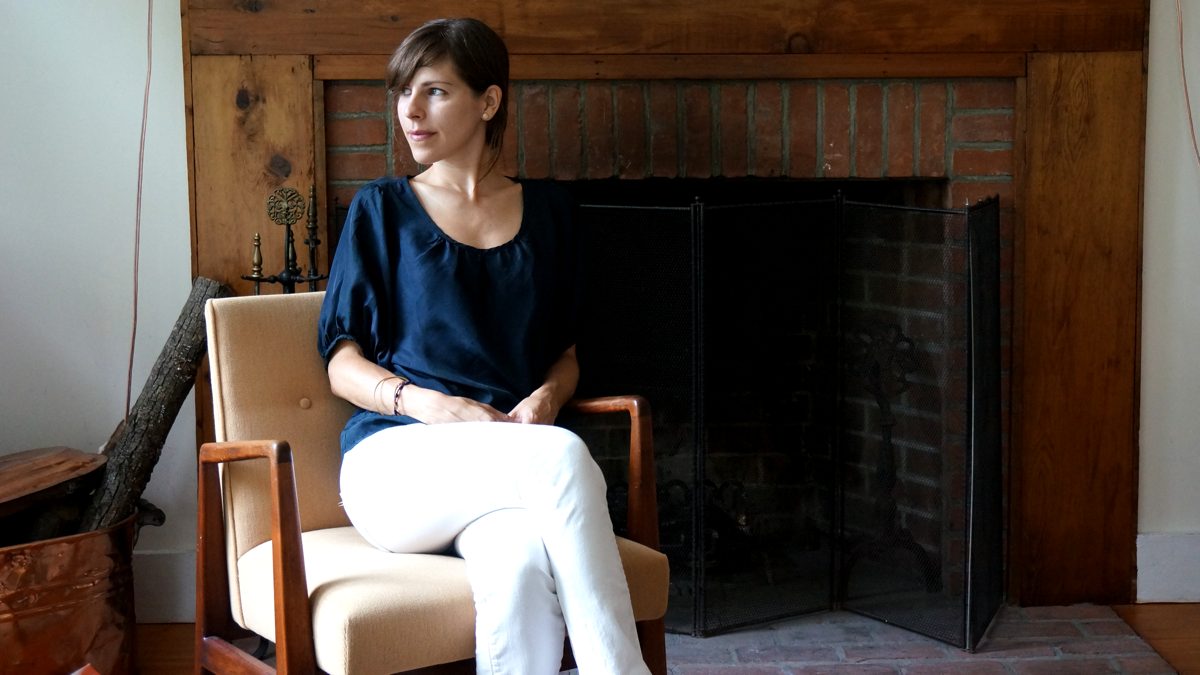
How do you respond to those in conventional medicine who dismiss this kind of approach?
When it comes to what I do, which is functional medicine, where we address diet and lifestyle change routinely and we look at the body as an interconnected matrix, my response is that this is the future of medicine. It is personalized, holistic, evidence-based and participatory—the patient and the doctor are teammates on a mission to succeed, and success is defined as optimum health and a sustainable lifestyle.
This kind of approach often gets dismissed by the conventional medicine world as "soft," but I believe that this perspective is influenced by a status quo that is based in the hospital and not out in the community where health and disease begin.
Health happens in the 99% percent of life when you are not in the doctors office, let alone hospitalized. We are now in an era where diet and lifestyle are driving the vast majority of our disease burden, most of which is due to things like obesity, diabetes and cardiovascular disease, and the answer is not another drug. Ultimately the true purpose of most drugs is to keep you safe while you do the real work of changing your life. Conventional medicine has the "keep you safe" part down, but seems to have forgotten about about changing your life, so for most people the root drivers of their disease don't go away, and these drivers eventually outpace the ability of the drugs to squash the symptoms. Or, sometimes, the drugs themselves outpace the body and do more harm than good.
Tell us about your work to promote the Indian natural healing process of Ayurveda. What got you started with this? And why do you think it's effective?
I love Ayurveda because it's the original personalized medicine. It looks at each person as having a unique constitution, mainly defined by genetics and early childhood environment, that then gets out of balance due to environmental triggers over time, like foods, toxins and stressors. In Ayurveda there is no "disease," just a person out of balance or a system knocked out of homeostatis in "Western" terms, and most people can be brought back into balance.
You mention that you like to listen to your patient's stories to create a health plan. Are there any particularly powerful stories you can share—both before and after treatment?
I have a lot of women patients and for many of them, food has become a battleground. I have to remind them that their definition of success may be what's killing them. One patient, a beautiful mother of two and former news anchor, came to me with severe PMS and issues with anxiety, but was hyper-focused on losing the "last 10 pounds." We used highly nuanced cutting-edge lab tests to work out what was going on with her and using the tests as our guide, we worked on diet, balancing her estrogen metabolism and resetting her adrenals, mostly with changes in what she was eating and a few supplements.
After a few months her life was radically different. She lost five pounds, and she loved her body. The anxiety and PMS were gone. Her relationship to her husband and her body were totally different. That is success and it goes way beyond weight. It has to do with a new 360-degree perspective on life.
When did you get involved with the tech side of health care? What potential do you see in this field?
I was in medical school and saw how broken communication between doctors was. Everyone in the hospital was using landlines, pagers and fax machines! Meanwhile in our regular lives we all had Facebook and iPhones. So a friend and I dreamed up an idea for an app that would act like WhatsApp, but be secure enough for medical use. Cureatr, our company, is now run by my co-founder and is being used in hospitals and clinics across the U.S.
You've spoken to Vice and others about the power of wearable tech. Why does this excite you—and where do you see it evolving in 5, 10 and 20 years?
Digital technology has revolutionized the way we communicate day to day. The iPhone only came out seven years ago, which is almost unbelievable, and it has changed the most mundane simple tasks. I believe the same will happen in medicine. Although health care is traditionally slow moving and understandably risk averse, tech is giving us tools to rethink how we do things from the ground up. There is a lot we can keep but there is a lot of procedure and process in health care that is slow, and not at all patient-friendly. Tech is giving us the opportunity to turn that on its head.
Are there any trends in health and wellness that give you cause for concern?
Sometimes I get concerned when I hear things like, "Tech will replace your doctor." I am a huge fan of Vinod Khosla and 100% agree that advances in data analytics and technology will replace a lot of what we doctors do today, especially on the documentation, administration and information gathering side. But the relationship between doctor and patient is irreplaceable, and the human story is ultimately what defines an individual's health. Tech will give us docs more and more opportunity to hear that story, and deliver better care for it.
If you could give three pieces of advice to people to live a more healthy life, what would they be?
First, do an elimination diet. I have an article on how to do it on MindBodyGreen.com, or do my 12-day detox program, Table, which will give you a jumpstart. Food sensitivities are rampant and no blood test can tell you what cutting out foods you are sensitive to can.
Second, learn to cook. It's fun, sexy and pleasurable. And once you can make some basic healthy meals you are in the drivers seat for transforming your health. There is no single more important decision we make on a daily basis than what we put on our tables and in our mouths.
Third, learn some sort of breathing, meditation or mindfulness practice. These practices are basic skills for a modern life, like tying your shoes or brushing your teeth, except no one teaches them to us in kindergarten. The research on what meditation and mindfulness does for brain plasticity, lowering stress hormones and even losing weight is incredible. This isn't woo-woo stuff, it's hard science-based, simple and life-changing.


